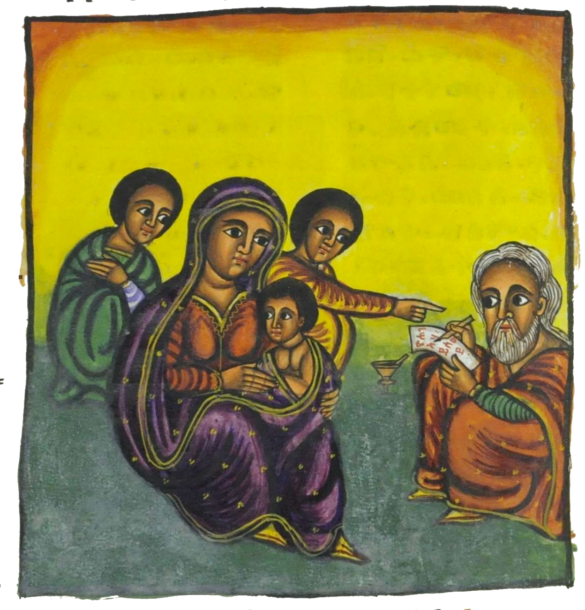You’ve probably heard of the phrase “always a bridesmaid, never the bride,” which is the kind of pernicious proverb nobody ever wants to have quoted at them. You’ve probably not heard the phrase “always a groomsman, never the groom,” but if anything it’s the older idea of the two! “Always a bridesmaid,” writes “Bridesmaid for Hire” Jen Glantz (no, I’m not joking) dates to a 1925 print advertisement for none other than Listerine mouthwash. (Yikes.) “Always a groomsman,” on the other hand, is a central part of the message of none other than St. John the Baptist, whose birth the Church celebrates in its calendar today.

In today’s second reading for Morning Prayer, John the Baptist’s disciples complain about the growing popularity of a certain young prophet who used to hang around with John. “Rabbi,” they say, “the one who was with you across the Jordan… here he is baptizing, and all are going to him!” (John 3:26) “I am not the Messiah,” John replies, “but I have been sent ahead of him. He who has the bride is the bridegroom. The friend of the bridegroom, who stands and hears him, rejoices greatly at the bridegroom’s voice. For this reason my joy has been fulfilled. He must increase, but I must decrease.” (John 3:28-30)
Always a groomsman, never the groom.
John the Baptist is traditionally depicted in icons and paintings with a finger stretched out, pointing the way to Jesus. Apart from his fiery message of repentance and his gruesome beheading, this is the idea that’s most commonly associated with his brief appearances in the New Testament. He is not the groom, but the groomsman; not the one who will take center stage at the great celebration, but the one who stands with him.
“He must increase,” John says, “but I must decrease.” (John 3:30) It’s not just a comment about the relative trajectories of their two careers, in which John will soon be arrested and executed while Jesus’ ministry grows. It’s a powerful statement not just about John’s life but about our own spiritual lives.
Whatever is best in me, whatever is most loving and gentle and beautiful in me, is in reality the power of the Holy Spirit working in me. It is still a part of me, but like a pane of stained glass it is nothing but opaque darkness without God’s light shining through it. Whatever is work in me, on the other hand, whatever is rough and harsh and angry, is my own dirt and muck occluding that light, preventing it from shining that the beauty beneath.
And all our spiritual life is the endlessly-iterative process of cleaning that glass, or letting it be cleaned; of allowing Christ to grow in us, and taking away the barriers to the Holy Spirit’s work through us; of our resentment and self-righteousness decreasing, and Christ’s faithful love increasing; of standing at the altars of our own lives, pointing away from our own egos and towards the love of Jesus.